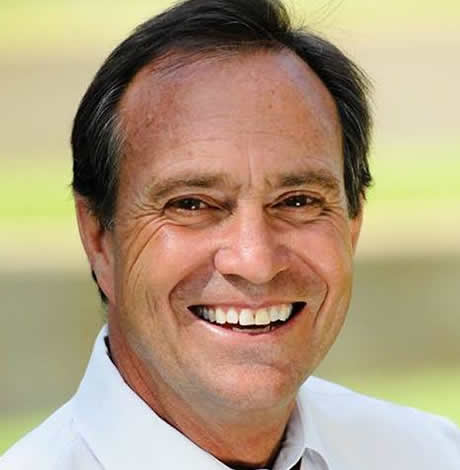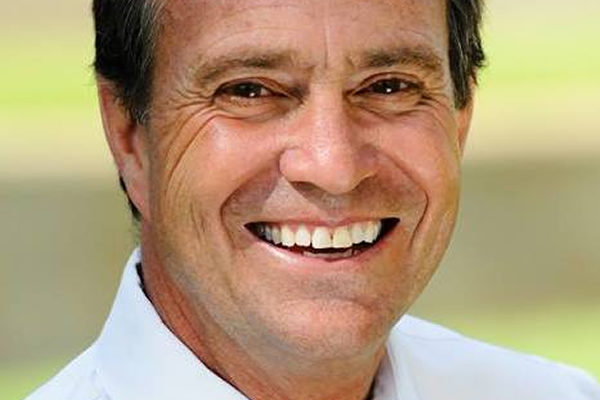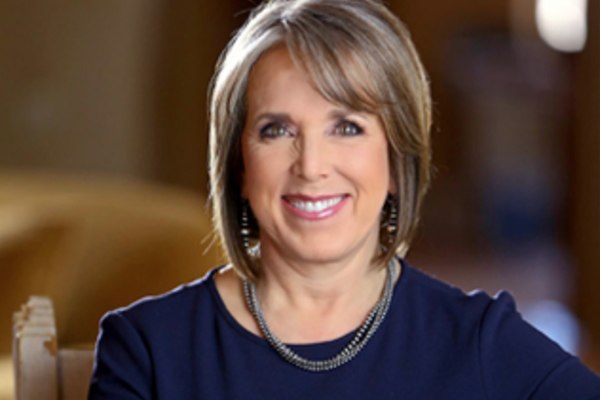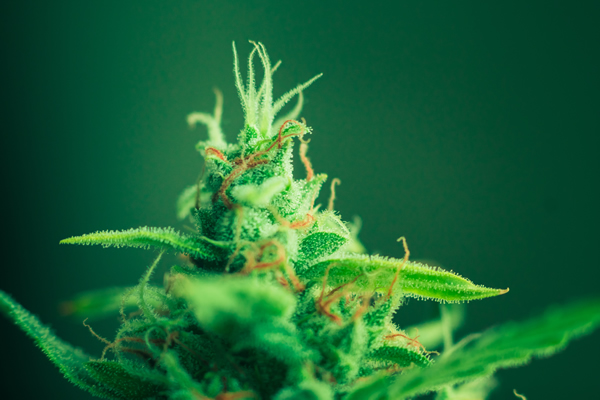Cannabis Culture
Cannabis Culture
25 House members back marijuana banking act


25 House members back marijuana banking act
More than one-quarter of U.S. House members have signed on to newly introduced legislation to facilitate greater access to banking for state-licensed cannabis operators.
The 2019 version of the Secure and Fair Enforcement (SAFE) Banking Act was introduced last Thursday and now has 113 co-sponsors — the most ever for a marijuana law reform bill.
Under federal law, banks and other financial institutions are discouraged from entering into relationships with marijuana-specific businesses. This has led to the industry operating on a largely ‘cash-only’ basis.
Last month, members of the U.S. House, Consumer Protection and Financial Institution Subcommittee heard testimony in favor of federal banking reform. NORML submitted testimony to the Committee, opining: “In short, no industry can operate safely, transparently, or effectively without access to banks or other financial institutions and it is self-evident that this industry, and those consumers that are served by it, will remain severely hampered without better access to credit and financing. Ultimately, Congress must amend federal policy so that these growing numbers of state-compliant businesses, and those millions of Americans who patronize them, are no longer subject to policies that needlessly place them in harm’s way.”
The SAFE Banking Act is one of several marijuana-related bills introduced in Congress in recent days. Other legislation includes The Ending Marijuana Prohibition Act of 2019, The Marijuana Justice Act, The Next Step Act, and The Marijuana Data Collection Act of 2019.
Cannabinoids associated with anti-cancer activity
STOKE-ON-KENT, U.K. — The administration of cannabidiol (CBD) is associated with anti-cancer responses in human subjects, according to a pair of recently published case studies.
In the first study, British investigators reported on the use of CBD in an 81-year-old lung cancer patient following his decision to decline chemotherapy treatment. Authors reported that the patients’ tumor size was reduced following the use of CBD extracts.
They concluded: “[T]he data presented here indicate that CBD may have had a role in the striking response in a patient with histologically proven adenocarcinoma of the lung as a result of self-administration of CBD oil for a month and in the absence of any other identifiable lifestyle, drug or dietary changes. Further work is needed both in vitro and in vivo to better evaluate the various mechanisms of action of CBD on malignant cells, and its potential application in the treatment of not only lung cancer but also other malignancies.”
In the second study, Brazilian investigators described the use of CBD in two 38-year-old patients with brain cancer. Their use of CBD in additional to traditional anti-cancer treatment was associated with a “significant improvement” in clinical outcomes and a lack of disease progression for two years. Authors concluded, “These observations are of particular interest because the pharmacology of cannabinoids appears to be distinct from existing oncology medications and may offer a unique and possibly synergistic option for future glioma treatment.”
A 2017 study assessing the concurrent use of CBD and Temozolomide (TMZ) in 21 patients with glioma reported that subjects provided CBD lived, on average, 45 percent longer than those treated with TMZ only.
Although cannabinoids have well-established anti-cancer activity in preclinical models, scientists have generally failed to assess these properties in controlled, clinical trials.
S. Dakota guv vetoes hemp licensing bill
PIERRE, S.D. — Republican Gov. Kristi Noem has vetoed legislation, House Bill 1191, which sought to comport state law with newly-enacted provisions of the 2018 Farm Act.
The measure sought to permit state regulators to license farmers to commercially cultivate industrial hemp and sought to regulate certain products derived from hemp, including CBD-infused extracts. In December, Congress enacted legislation descheduling hemp and hemp-derived cannabinoids from the federal Controlled Substances Act and making states the primary regulators of the plant.
Gov. Noem stated in her veto: “Our state is not yet ready for industrial hemp. … [T]his bill supports a national effort to legalize marijuana for recreational use.”
Members of the House voted to successfully override the governor’s veto, but Senators failed to obtain the two-thirds majority necessary.
Noem received an ‘F’ grade in NORML’s 2019 Governors Scorecard.
Cannabis Culture news in the Blade is provided in partnership with NORML. For more information, visit NORML.org or contact Paul Armentano, NORML Deputy Director, at [email protected].

Democratic Gov. Michelle Lujan Grisham earlier this month signed two separate measures into law amending the state’s marijuana policies. The first measure (House Bill 2) legalizes and regulates marijuana possession, production, and sales for adults. The second measure (Senate Bill 2) facilitates the automatic review and expungement of the records of those convicted of low-level marijuana offenses.
Lawmakers approved both bills during a special legislative session demanded by Gov. Lujan Grisham, who had been a vocal proponent of the reforms.
NORML State Policies Manager Carly Wolf said: “This is a day to celebrate! New Mexico will greatly benefit from this new revenue stream and the creation of thousands of jobs. Most notably though, legalization will spare thousands of otherwise law-abiding residents from arrest and a criminal record, and the state’s new expungement law will help provide relief to many who are suffering from the stigma and other collateral consequences associated with a prior marijuana conviction.”
The adult-use measure (House Bill 2) permits those ages 21 and older to legally purchase up to two ounces of marijuana and/or up to 16 grams of cannabis extract from licensed retailers. It also permits adults to home-cultivate up to six mature plants for their own personal use. Retail sales would begin by April 2022.
The expungement measure (Senate Bill 2) stipulates that those with past convictions for offenses made legal under this act are eligible for automatic expungement of their records. Those currently incarcerated for such offenses are eligible for a dismissal of their sentence. It’s estimated that over 150,000 New Mexico residents are eligible for automatic expungement under this measure, according to the Department of Public Safety.
Cannabis Culture news in the Blade is provided in partnership with NORML. Visit norml.org for more information.
Cannabis Culture
Delaware cannabis activists take on corporate marijuana
Criticism from medical marijuana operators claimed that HB150 offers too many cultivation and retail licenses

As the country moves forward with sweeping changes in cannabis policy reform, locals in Delaware are tangling with corporate, multi-state medical marijuana permit holders to pass a bill for full legalization.
Adult-use activists and registered medical patients were stunned to hear opposing testimony from Delaware’s medical marijuana operators. Patients already deal with limited access and costly products. Now, many see the established industry voicing opposition as simply obstructing the progress of adult-use legislation. In response, some patients are now staging a boycott of the regulated dispensaries.
During the first committee hearing for HB150, Delaware’s adult-use bill, four of the state’s six currently licensed, multi-million dollar medical cannabis facilities offered negative testimony.
Zoë Patchell, executive director of Delaware CAN responded: “This market belongs to the long-time consumers, patients, and activists. We create the demand, we’ve been the ones driving the reform efforts, and we pay the prices at dispensaries. Cannabis is more than a market – cannabis is a community. These companies cannot reasonably fathom that we are going to purchase cannabis from any entity that has proven to put profits over patients. And now they seem willing to put consumers’ lives and freedom at risk just to hold out for an unfair advantage in the industry.”
These included publicly traded Columbia Care, “Fresh Delaware” aka CCRI, CannTech Research Inc., and the owner of EZY Venture aka “The Farm.”
They all went on record condemning HB150, and pushing a false narrative about oversupply. The core demand from the permit cartel was some protection for their private business interests with guaranteed adult-use licenses.
Criticism from the medical marijuana operators claimed that HB150 offers too many new cultivation and retail licenses, underlined by deep yet unfounded fears that the new competition would put their companies out of business.
Patchell noted, “We are not going to sit back while multi-state corporate entities, that already monopolize East Coast medical markets, work to undermine our social equity and micro-license provisions.”
Cannabis Culture news in the Blade is provided in partnership with NORML. Visit norml.org for more information.
Cannabis Culture
Virginia marijuana legalization takes effect July 1
Adult possession of cannabis up to one ounce without penalty

Following legislative approval of Democratic Gov. Ralph Northam’s amendments to Senate Bill 1406 and House Bill 2312, Virginia became the first southern state to legalize the possession and use of marijuana by adults.
Senate Bill 1406, introduced by Sen. Adam Ebbin (D-30) and Senate President Pro Tempore Senator Louise Lucas (D-18), and House Bill 2312, patroned by House Majority Leader Delegate Charniele Herring (D-46), establish a statutory timeline for the legalization of the commercial marijuana market in Virginia. The measure also permits for the personal possession and cultivation of cannabis by those ages 21 or older.
Last week, Gov. Northam recommended changes to the legislation to permit the personal use provisions of the law to take effect on July 1, 2021 rather than on January 1, 2024, the enactment date initially approved by lawmakers. A majority of the legislature concurred with that change.
Therefore, beginning July 1, 2021, adults will be permitted to possess up to one ounce of marijuana and to cultivate up to four cannabis plants per household without penalty.
The timeline by which state regulators have to enact provisions licensing commercial cannabis production and sales remains July 1, 2024.
Commenting on final passage, NORML Development Director Jenn Michelle Pedini, who also serves as executive director of Virginia NORML, said: “This is an incredible victory for Virginia. Legalization will bring an end to the thousands of low-level marijuana infractions occurring annually in the Commonwealth — ending a discriminatory practice that far too often targets Virginians who are young, poor, and people of color.”
Majority Leader Charniele Herring added: “It is a huge day for equity in the Commonwealth. Virginia is now the first state in the South to legalize recreational marijuana use, and I am so proud to have been able to carry this monumental legislation.”
Sen. Ebbin said, “The passage of SB1406 caps off years of struggle to reform our broken and outdated marijuana laws and begins the deliberate steps to repeal the harms of the failed prohibition. I am thankful to NORML, the governor, and my colleagues for moving this 283 bill from inception to passage over the last four months, and look forward to continuing to partner with them to establish a regulated, equity focused, adult-use marketplace in the coming years.”
Newly released statewide polling data finds that 68 percent of registered voters in Virginia, including majorities of Democrats and Republicans, support legalizing marijuana for adults.
Additional amendments added by Gov. Northam will allow the sealing of records related to crimes involving the misdemeanor possession of marijuana with the intent to distribute. Those records will begin to be sealed starting on July 1, 2021. Separate legislation enacted in 2020 previously sealed records related to misdemeanor marijuana possession.
Records specific to the simple possession of marijuana and/or misdemeanor possession with intent to distribute records will be automatically expunged no later than 2025. Those with records specific to crimes involving the felony possession of marijuana with the intent to distribute may begin to petition the courts for an expounging of their records in 2025.
The bill also allows for the re-sentencing of individuals currently incarcerated for marijuana-related offenses. The measure permits those individuals to have a hearing before the court that originally sentenced them, with legal counsel provided for indigent individuals. However, this portion of the bill must be reenacted in 2022.
The legislation also establishes an independent agency, the Virginia Cannabis Control Authority, to oversee the establishment of regulations that will govern the adult-use market. This agency is set to convene this summer. The remainder of the 300-page bill, which details the regulatory and market structure and social equity provisions, is subject to a second review and vote by the Assembly next year.
Cannabis Culture news in the Blade is provided in partnership with NORML. Visit norml.org for more information.
-

 District of Columbia5 days ago
District of Columbia5 days agoImperial Court of Washington drag group has ‘dissolved’
-

 Colombia4 days ago
Colombia4 days agoGay Venezuelan man who fled to Colombia uncertain about homeland’s future
-

 Arts & Entertainment4 days ago
Arts & Entertainment4 days ago2026 Most Eligible LGBTQ Singles nominations
-

 District of Columbia4 days ago
District of Columbia4 days agoKennedy Center renaming triggers backlash




















